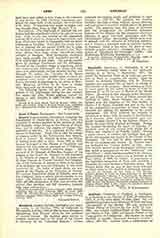

Annibaldi, ANNIBALE D’, theologian, b. of a. Roman senatorial family early in the thirteenth century; d. at Rome, September 1, 1271. He joined the Dominican Order at an early age and was sent to Paris to complete his studies. Here he formed an intimate friendship with St. Thomas Aquinas and succeeded him as regent of studies at the Convent of St. Jacques. After teaching in Paris for some years, he was called to Rome in 1246 by Innocent IV to fill the post of Master of the Sacred Palace. He served in this capacity under Alexander IV and Urban IV, the latter of whom created him Cardinal in 1262. When Clement IV, in 1265, handed over the kingdom of the Two Sicilies to Charles I of Anjou, Annibale was put at the head of the commission empowered to treat with the monarch and register his agreement to the papal stipulations. The King received the insignia of investiture at Rome from the hands of the Cardinal. On January 6, 1266, Annibale anointed and solemnly crowned Charles I in the Lateran Church at Rome, the Pope being detained at Perugia. During the vacancy succeeding the death of Clement IV, Annibale received and treated with Philip III of France and Charles I at Viterbo (1270). During a papal mission at Orvieto, the Cardinal died, and, by his own request, was buried in the Church of San Domenico. He was held in great esteem during life for his learning and virtues. St. Thomas Aquinas dedicated his “Catena Aurea” to him. Annibale, besides several small theological treatises now lost, wrote a commentary on the “Sentences” and “Quodlibeta”, which has been ascribed to St. Thomas, and published with his works even as recently as the Paris edition of 1889, by Frette. A manuscript in the Carmelite monastery in Paris calls Annibale a Carmelite who later became a Cistercian abbot. But Echard shows that no man of that name belonged to either order in the twelfth or thirteenth century.
THOS. M. SCHWERTNER

